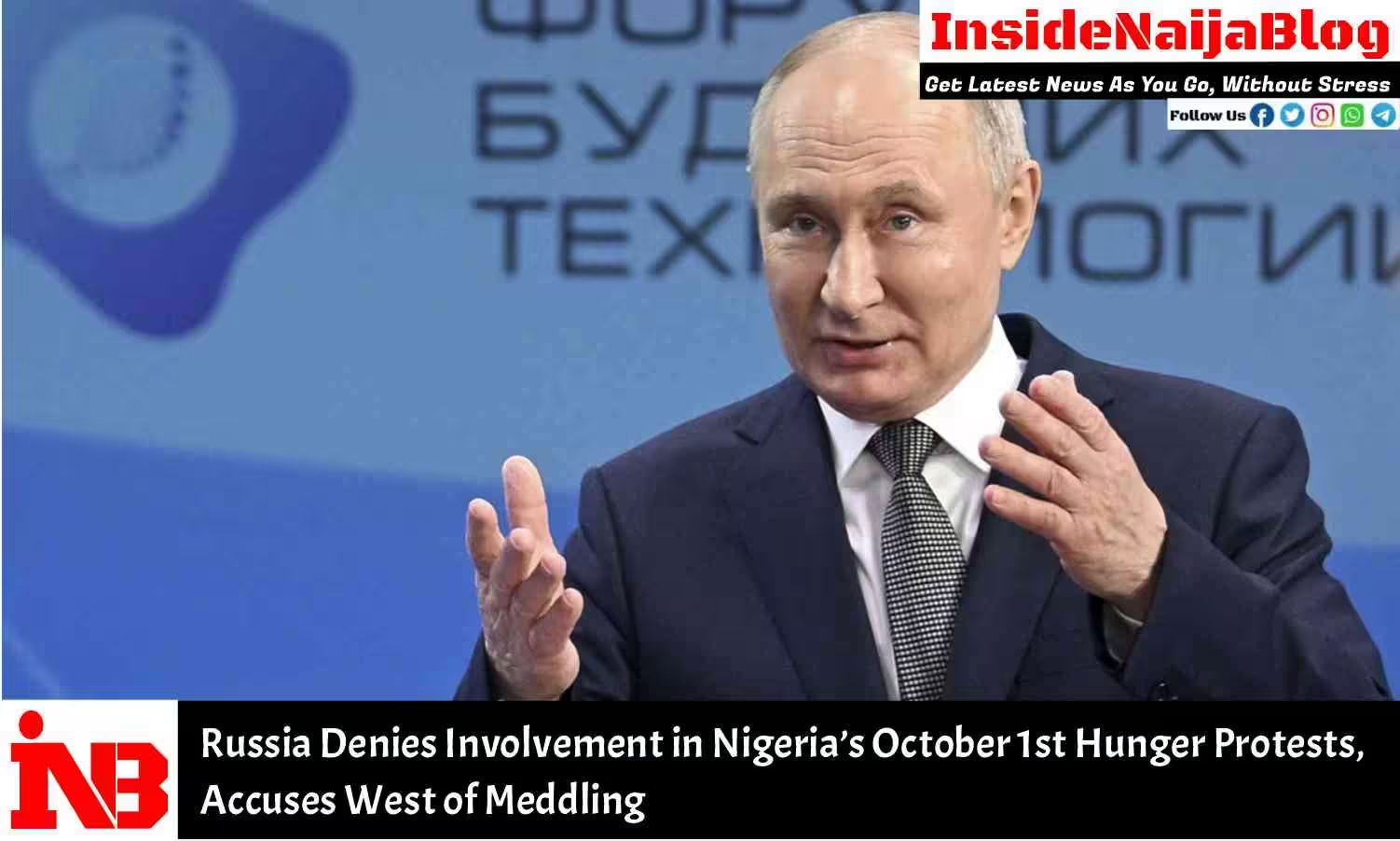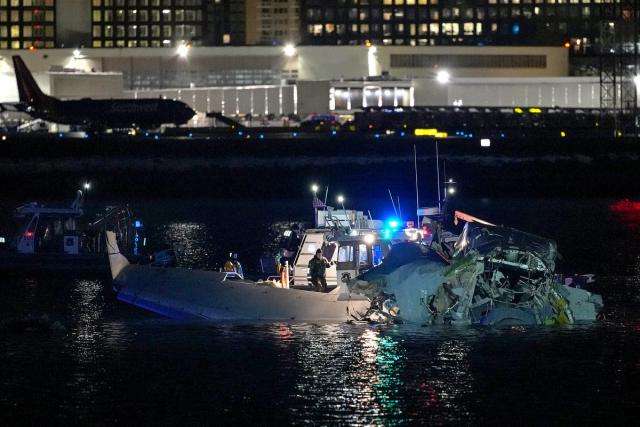In a recent statement, the Russian government has distanced itself from accusations of involvement in the October 1st hunger protests in Nigeria, which were marked by the appearance of demonstrators waving Russian flags and chanting pro-Russian slogans. These allegations of Russia’s involvement were addressed in a letter from the Russian government to the Nigerian Ministry of Foreign Affairs, shared with InsideNaijaBlog, the official Press Secretary of the Russian Embassy in Nigeria.
The protests, which took place on Nigeria’s Independence Day, stirred controversy as protesters brandished Russian flags, sparking speculation about external influence. Russia, however, firmly denies any involvement, claiming that Western countries—particularly the United States, Britain, and Ukraine—are trying to undermine its relationship with Nigeria by falsely linking it to the unrest.
Russia Rejects Accusations of Interference
In the letter, the Russian government rejected what it described as “shameless and baseless” claims made by Western officials, including U.S. Secretary of State Antony Blinken, former British Council Director David Roberts, and Ukraine’s Ambassador to Nigeria, Ivan Kholostenko. According to Russia, these figures have suggested that the use of Russian symbols during the protests was evidence of Moscow’s interference.
“The Embassy categorically rejects such accusations and reiterates that the Russian Federation neither had any involvement in the protests that occurred in the recent past, nor does it have any connection to any potential future demonstrations or unrest,” the letter stated.
Russia maintained that it has always respected Nigeria’s sovereignty and upholds the principle of non-interference in the internal affairs of independent nations. The statement emphasized Moscow’s commitment to peaceful dialogue and the legal resolution of disputes within Nigeria, urging the Nigerian government to ignore Western attempts to create discord.
Western Meddling and Media Campaign
The Russian letter went on to accuse the United States, Britain, and Ukraine of orchestrating a coordinated media campaign to frame Russia as responsible for political unrest in West Africa. The Russian government claims that these countries are attempting to shift blame onto Moscow to erode the cordial relations between Nigeria and Russia.
The letter from the Russian embassy read: “By contrast, the coordinated media campaign by Western and Ukrainian officials and outlets clearly points to their attempts to meddle in Nigeria’s internal affairs and shift the blame for any consequences onto the Russian Federation.”
Russia also referenced its alleged involvement in political upheavals in other West African countries, including Mali, Burkina Faso, and Niger, but reiterated its position that it had no hand in these events either. The Kremlin insists that it is being wrongfully implicated in an attempt to discredit its growing influence in the region.
Russia’s Message of Support to Nigeria
Despite the controversy, the Russian government expressed its unwavering support for Nigeria’s leadership and people. Yury Paramonov also relayed Russian President Vladimir Putin’s congratulations to Nigerian President Bola Ahmed Tinubu on Nigeria’s National Day, underscoring the long-standing diplomatic ties between the two nations.
“The Embassy extends its best wishes to the people and Government of Nigeria for prosperity and stability, and we hope for continued cooperation and deepening relations between our two countries,” Paramonov said in his statement.
Russia has been keen to strengthen its relationships with African countries, including Nigeria, through trade, defense agreements, and diplomatic channels. However, this latest incident highlights the growing tensions between global powers, as both the West and Russia vie for influence in Africa amidst ongoing political and economic struggles in the region.
Concerns of External Influence in West Africa
The allegations against Russia come at a time of heightened geopolitical tension in West Africa, with the region experiencing political instability, military coups, and rising protests. Russia’s alleged involvement in the political crises in Mali, Burkina Faso, and Niger has sparked concerns about external interference in the internal affairs of these nations.
While Russia has denied any direct involvement, its growing presence in the region—marked by its support for military juntas and diplomatic initiatives—has led to questions about Moscow’s long-term ambitions in Africa. Some experts argue that Russia is positioning itself as a counterbalance to Western influence on the continent, offering an alternative to the traditional Western powers through defense and energy cooperation.
Looking Ahead: Russia-Nigeria Relations
As Russia continues to deny involvement in Nigeria’s internal affairs, the focus shifts to how Nigeria will navigate its diplomatic relationships with both the West and Russia. Moscow’s insistence on a peaceful and non-interfering approach to Nigeria’s domestic issues contrasts with the accusations levied by Western officials, creating a complex web of international relations for Nigeria to manage.
With Russia’s promise of continued cooperation and support for Nigeria, the future of bilateral relations will depend on how Nigeria responds to these competing narratives and the broader global struggle for influence in Africa.
For now, Russia remains committed to maintaining strong ties with Nigeria, expressing hope for deeper collaboration in the years ahead. However, the hunger protests and the allegations of foreign meddling serve as a reminder of the ever-present tension in international diplomacy, especially as Africa becomes a key battleground for global powers seeking influence.




